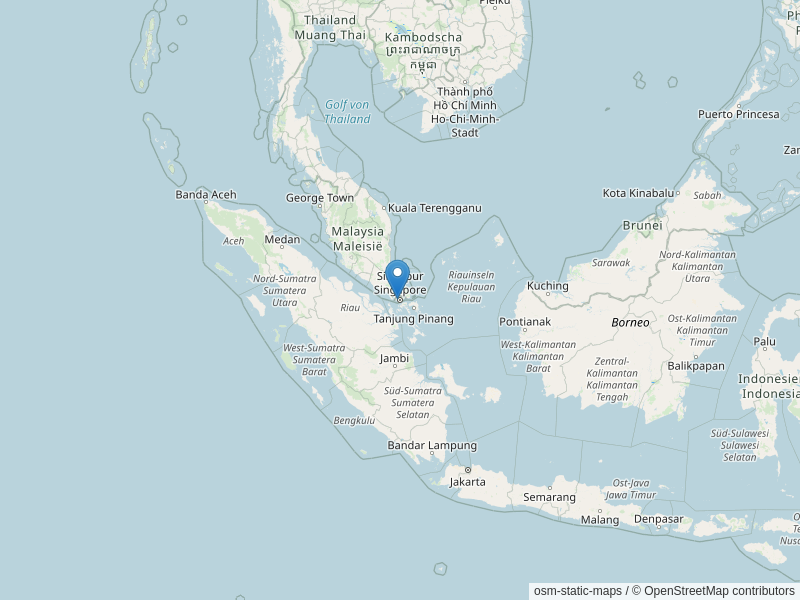Häufig gestellte Fragen (nur auf Englisch)

No. You will first need to obtain a polytechnic diploma resp. sit for the GCE ‘A’-Levels or the International Baccalaureate, before you can apply for admission to a German university. There are no bridging or foundation courses for GCE-‘O’-Levels holders.
International students are required to meet similar standards as German students in their Abitur. This means, the second language is mandatory. You can retake your A-Level exams in another language to fulfil the application requirements. Other language courses or proof of language are not accepted.
By default: no. However, by providing uni-assist or the university with the GP Syllabus and explaining the level of English it requires, it sometimes may be accepted.
Please refer to anabin http://anabin.kmk.org/no_cache/filter/schulabschluesse-mit-hochschulzugang.html or contact them for questions http://anabin.kmk.org/service/kontakt.html
Germans with and IB are viewed as international applicants and IB regulations apply. However, as German or EU citizens they will not be required to pay tuition fee in Baden-Wuerttemberg.
There are over 400 institutions of higher education and it depends what you are looking for. Research or practical orientation, small or big class sizes, the type of town you want to live in. Please visit www.daad.de/international-programmes or www.daad.de/study-programmes
The CHE ranking from ZEIT magazine lets you find suitable universities by your own criteria: http://ranking.zeit.de/che2016/en/
The academic calendar in most German universities comprises of two semesters during the following periods:
Wintersemester: Mid-October to Mid-February (application deadline: July 15)
Summersemester: Early or Mid-April to Mid or End-July (application deadline: Jan 15)
Note that some universities may require you to apply earlier, so check with the university of your choice. Universities of applied sciences often start their term earlier than universities, which can also mean that their application deadlines end before the stated time.
No. The DAAD does not act as an agency for applications. However, applying through uni-assist or to the university directly is pretty straight forward and you should have no problems doing this on your own.
Watch this detailed YouTube webinar by uni-assist for more information on the application process via their portal: https://www.youtube.com/watch?v=kc40oI9uaMc
uni-assist does the pre-check of applications only by instruction of its member universities. It is up to each university to determine which applicant groups that uni-assist would be responsible for. If it is not possible for you to apply via uni-assist, please enquire directly at the university of your choice for each of your applications. http://www.uni-assist.de/bachelor-studium.html
There is unfortunately no such thing as global recognition of degrees. Each country has its own regulation of recognizing overseas degrees. In Singapore, there is no central authority that accredits foreign degrees, instead it is left up to the employer to hire the person or not. However, there are a number of professional boards (eg. Professional Engineers’ Board, Board of Architects, Singapore Medical Council) that each have a list of overseas universities, whose degrees they have accredited and recognize as equivalent to the Singapore ones. Please check with them, if in doubt.
Do make sure that the university of your choice is recognized in Germany (“staatlich anerkannt”).
Medical studies, including pharmaceutical studies, veterinary science or dentistry have special requirements compared to other subjects and special restrictions are applicable to Singapore.
Medical subjects are only taught in German. Applicants must therefore pass a language proficiency test such as TestDaF or DSH prior to applying.
The Singapore Medical Council (SMC) accepts medical degrees from the following 4 universities: Ruprecht-Karls-University in Heidelberg, Johann-Wolfgang-Goethe University in Frankfurt, Ludwig-Maximilians-University in Munich and Charite-Universitätsmedizin in Berlin. Downloadable via SMC: http://www.healthprofessionals.gov.sg/content/dam/hprof/smc/docs/becoming_registered_doctor/Second%20Schedule%20-%20Registrable%20Basic%20Medical%20Qualifications.pdf
Certainly! All three local universities have established student exchange programmes with German partner universities. Please contact the International Relations Office (IRO) of your respective university to find out more about the exchange programmes and eligibility criteria.
Please note that there are no DAAD scholarships for exchange stays in Germany available.
NUS: http://www.nus.edu.sg/gro/
NTU: http://www.ntu.edu.sg/oia/Pages/index.aspx
SMU: https://www.smu.edu.sg/global/global-programmes
Yes, you do. You are urgently warned against entering the country as a tourist; a tourist visa cannot be converted into a visa for study purposes after your arrival in Germany.
For detailed information about the different types of visa and the application process in general, please refer to http://www.singapur.diplo.de/Vertretung/singapur/en/04/2__Visa/__Visa.html
Upon arrival in Germany you will first have to take care of important formalities such as registering at the town hall and enrolling at university. You will find a comprehensive guide on https://www.study-in.de/en/plan-your-stay/first-steps/
You can expect to need around SGD 1,300 (800 Euros) a month on average but some cities can be more expensive than others.
Yes, on a student visa you are allowed to work 120 full or 240 half days.
That depends what course you take. Over 1,900 international courses offer choices to study completely in English and you may not be required to speak any German (however, your stay will be a lot more rewarding if you speak some German).
If you plan on studying in German, you must learn German to level C1 and pass a language test (TestDaF or DSH or Goethe Zertifikat C2 for example).
You can contact the Singapore Students’ Association of Germany (http://www.ssag.de) and write to them via email at exco@ssag.de.
You can also join them on Facebook (http://www.facebook.com/ssag.de).
Please contact the DAAD Information Centre by phone (6223 4226) or fill in our contact form.
You are also welcome to make an appointment for a free personal one-to-one consultation.
Follow us on Facebook to hear about events and updates: https://www.facebook.com/daad.singapore

